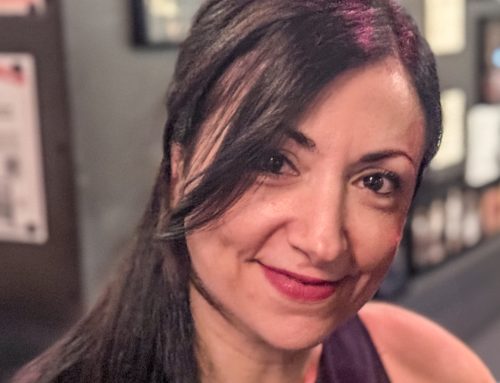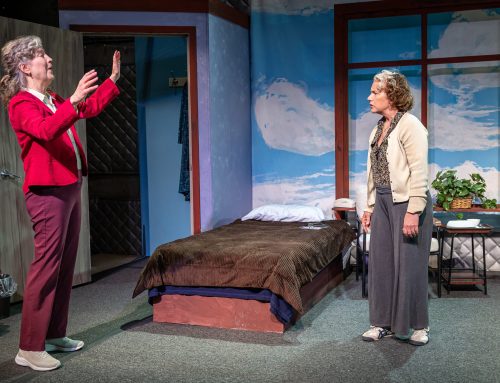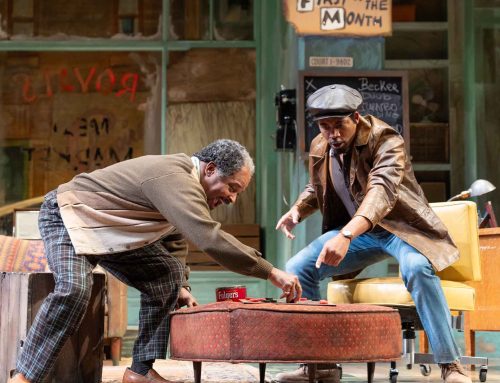February 25, 2007 – Opening Performance
Ashland, OR
at the Oregon Shakespeare Festival

I pushed my way out of the theater at intermission because after only an hour or so, I needed daylight. I was hoping for bright sunshine, but the obscured sky and the accompanying driving rain actually was probably better. The gloom was less jarring after what we’d been through.
The official Oregon Shakespeare Festival synopsis of the play is mechanical and sparse compared to the actual production. It talks about death and colliding grief. Director Jim Edmonson did a summary that says it better but remains unsatisfying:
“Rabbit Hole seems to me a fugue for five characters: a study in loss and guilt and courage and very complicated love.”
I won’t try to best Edmonson, because the truth is this play is good enough that no smart paragraph or two is going be adequate. You have to see the play and let any overview remind you of what you saw.
The story of a family eight months into dealing with the death of a child is difficult to keep in the drama range: it could easily slip into mawkish melodrama. Lindsay-Abaire keeps that from happening by delivering true-to-my-life dialog and OSF keeps it from happening by delivering a company equal to the play.
The parents have serious discussions — truly angry arguments even — that are salted with humorous one-liners. It’s just like the domestic ahh…. discussions…. I have at home. The language is real, understandable, and painful.
Except, and of course, it’s not always painful. The play opens with a seemingly shallow Tyler Layton (Izzy, aunt to the dead child) telling the story of how she got into a barroom fight with another woman. It’s an outrageous story, setting a humorous mood, yet not a fluffy word of it is wasted when it comes to our main story. Layton is amazing as the airhead who isn’t so fluffy herself at the end of two hours and 30-some minutes. She, like her fellow cast members, is close to perfection in her language and physical moves. Damn it, she’s good!
The characters change during the two months of the play. It’s believable growth that doesn’t resolve into a happy ending. Yet trying to fix any of the characters by describing their personality doesn’t work unless the characterization is limited by time.
For example, when the play opens Robin Goodrin Nordli (Becca, the mother) is as beautiful as the TV desperate housewife with whom she shares an obsession with numbing details. She’s not ready to make nice with life, or anyone in it. She’s still beautiful at the end of the production, still not happy, but she has grown less brittle and it shows brilliantly in her speech and in her body.
Dee Maaske (Nat) finally escapes variations on her role as ditsy Dorothy in Noises Off. Sure, as the grandmother she can deliver some ditsy lines. But, she has her own emotions that are completely grounded and rational. It was nice to see her out of frumpy clothes, too. She’s not at all bad looking as a brassy blonde!
Even the non-equity Jeris Schaefer as the high-school driver of the car that struck and killed the son does a superb job with the excellent material. He is right on down to his finger motions and the wiping off of food from his hands by a quick brush off onto his pants. Amazingly good work!
Finally, Bill Geisslinger as the father is fine. I personally find his Bill Clinton-like incomplete voice disconcerting. He’s too underplayed and difficult to understand for me, but I think it’s just me.
Not since Wit did a play make me feel such a need to see daylight to decompress. Unlike Wit, by the end of this play, we’d changed enough so I could live indoors again. Not happily indoors, but still inside and in the company of other people.
![]()





Leave A Comment